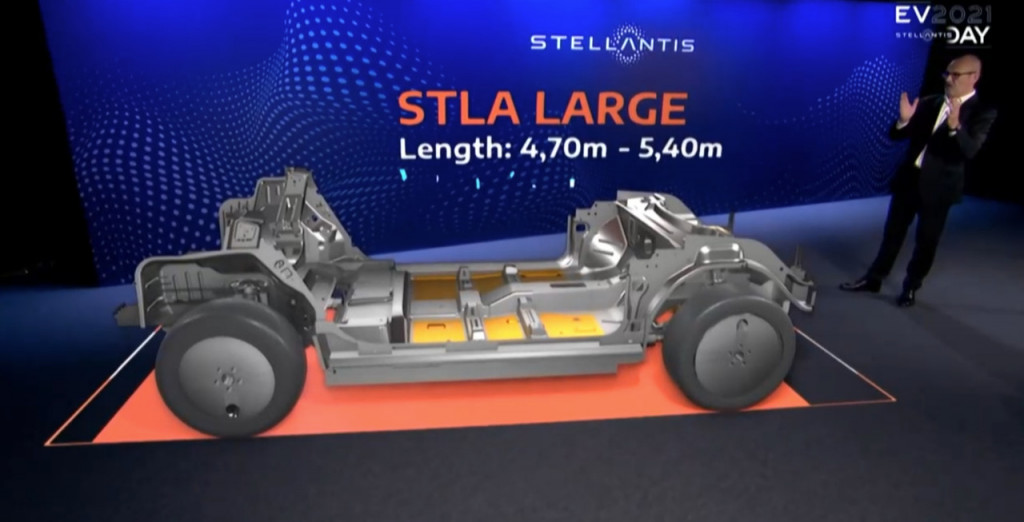Mercedes-Benz announced Friday that it plans to join Automotive Cells Company (ACC), the venture between Stellantis and TotalEnergies, creating “a European battery champion for electric vehicles.”
With the new stakeholder, ACC will aim for a 120-gigawatt-hour annual capacity, more than doubling the previous target, and boosting the venture to more than 7 billion euros ($8.2 billion). When the former PSA Group and Total announced ACC, initial output was expected to be 8 GWh in 2023, ramping up to 48 GWh, from two factories, in 2030.
The newly expanded company didn’t yet disclose where that expanded capacity will be located. After an initial pilot plant, ACC’s first larger-scale battery plant will be in France, with another already planned for Germany.
According to the announcement, ACC will be able to tap into technological expertise from Saft battery development, research and development expertise from Mercedes-Benz, and affordable sustainable mobility solutions from Stellantis.

STLA Large platform - Stellantis EVs
Both Stellantis and Mercedes-Benz have announced comprehensive strategies to make portions of their fleets fully electric. In a July presentation that included a tease of upcoming electric Dodge muscle car and Ram 1500 pickup models for the U.S., Stellantis announced that it plans for battery-electric and plug-in hybrid models to add up to 70 percent of European sales by 2025, made possible via a strategy including two different battery chemistries.
Mercedes, also in July, updated and accelerated its electrification plans, including a goal to shift to an all-electric lineup by 2030. That roadmap didn’t include a major update to the battery plan, but in 2020 it announced a $1.1 billion plan to establish a “global network of nine battery factories” managed by Deutsche Accumotive and currently has a deal to purchase cells from China’s CATL for its EQS flagship.

2022 Mercedes-Benz EQS production at plant in Sindelfingen, Germany
Stellantis’ U.S. arm used to be linked closely together with Mercedes-Benz as part of DaimlerChrysler from 1998 to 2007.
Under the new arrangement, each of the three companies will hold a 33-percent equity stake. TotalEnergies is the oil and energy company formerly known as Total. It officially changed its name last year as part of a pivot toward green energy and electricity. That’s part of a broad shift of the business as oil giants make massive investments in charging infrastructure, the battery ecosystem, and key technologies, and it includes targets from Total, Shell, and BP to have net-zero emissions by 2050 and a rather jarring statement from Shell last year admitting it’s past peak oil.
ACC is by no means the only effort aiming for mass-production of battery cells in Europe. The French startup Verkor aims to start production there in 202 at 16 GWh and ramp up to 50 GWh later in the decade, while joint ventures between Sweden’s Northvolt and Volvo and VW will help support both automakers’ ambitious goals.












